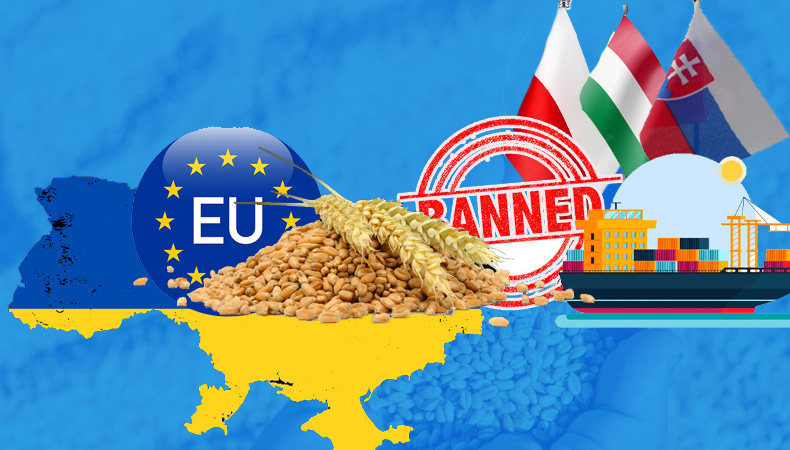EU Grain Bans: A Geopolitical Agricultural Puzzle

Recent developments have brought to light the intricate interaction between geopolitical factors and the agriculture sector in the ever-changing context of global trade and politics. The European Union members Poland, Hungary, and Slovakia decided to impose their limitations on the import of Ukrainian grain on September 15, 2023. This choice was made in response to the European Commission’s decision not to broaden its restriction on grain imports from Ukraine into nearby EU nations.
Due to the disruption of its ability to use favored shipping routes through Black Sea ports, Ukraine, a historically large worldwide grain exporter, encountered difficulties after Russia’s invasion in 2022. Because of this, Ukrainian farmers have had to rely on their neighbors to continue exporting their agricultural goods, which has had an unexpected effect on local markets.
As a result of the oversupply of Ukrainian grains and oilseeds in the region, local farmers’ incomes were impacted, and governments in the area decided to impose import restrictions on Ukrainian agriculture. In May, the European Union intervened, enforcing its embargo on imports into the region’s neighbors while allowing Ukraine to export through them under the condition that the produce be sold elsewhere.
On September 15, though, the EU’s embargo was lifted after Ukraine pledged to take action to tighten control over shipments to its neighbors. As farmers start their harvest and get ready to sell their produce, this trend is very important.
Valdis Dombrovskis, EU Trade Commissioner, advised against unilateral actions regarding grain imports from Ukraine and emphasized the importance of efficient export controls. However, Poland, Slovakia, and Hungary swiftly reintroduced their limitations on Ukrainian grain imports, arguing the necessity of their moves for their economies.
Keep Reading
The bans aim to protect domestic markets from the effects of Ukrainian imports and cover a variety of grains and related items. However, they permit the transit of Ukrainian goods going to other markets. This fluid equilibrium aims to protect national interests while preserving some flexibility for Ukrainian agricultural exports.
After Russia pulled out of a Black Sea grain deal mediated by the U.N., the European Union had earlier established Solidarity Lanes, alternate land routes, to help Ukraine’s shipments of grains and oilseeds. The purpose of these lanes was to provide cargo ships with a secure route.
The European Commission cited the elimination of market inefficiencies as justification for the suspension of existing regulations. They emphasized how crucial it was for Ukraine to maintain strong export controls to support free commerce. .. In response to this circumstance, Ukrainian President Volodymyr Zelenskiy praised the EU’s choice and vowed a dignified response in the event that an EU member state broke EU laws. Poland, Slovakia, and Hungary defended their conduct, highlighting their duty to their farmers and domestic markets.
The limits on Ukrainian grain imports are a reflection of the complex issues facing the European Union and its member states, where issues relating to agriculture and the economy coexist with larger geopolitical developments.







